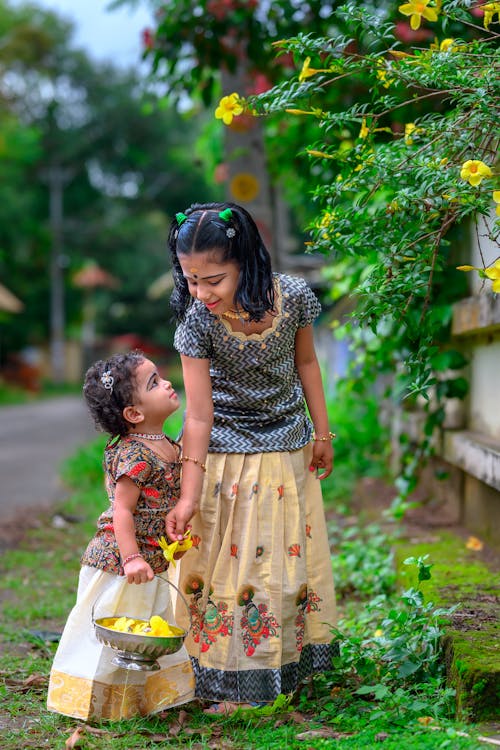Celebrating Tamil New Year: "Puthandu" or "Varusha Pirappu"
Tamil New Year, also known as "Puthandu" or "Varusha Pirappu," is a vibrant and culturally significant festival celebrated by Tamil people around the world. This auspicious occasion marks the beginning of the Tamil calendar year and is observed with great enthusiasm, traditional rituals, and joyous festivities. Let's delve into the rich history, customs, and significance of Tamil New Year.
The Significance of Tamil New Year:

Tamil New Year falls on the first day of the Tamil month of "Chithirai," which usually falls in mid-April. This day holds immense significance as it symbolizes new beginnings, prosperity, and the rejuvenation of life. It is a time when families come together to celebrate, reflect on the past year, and set intentions for the year ahead.
History and Customs:
The history of Tamil New Year dates back thousands of years, rooted deeply in Tamil culture and traditions. It is believed to have originated during the Sangam Age, an ancient period of Tamil literature and poetry.
On the day of Tamil New Year, homes are decorated with colorful kolams (rangoli), mango leaves, and flowers. People dress in new attire, symbolizing a fresh start, and visit temples to seek blessings for a prosperous year ahead. One of the central customs is the preparation of a special dish called "Maanga Pachadi," a sweet and sour concoction made with raw mangoes, jaggery, neem flowers, and other ingredients. This dish represents the varied experiences of life—sweetness, bitterness, tanginess, and joy—and teaches the importance of embracing all facets of life.
Festivities and Celebrations:

Tamil New Year is a time of joyous celebrations, filled with traditional music, dance, and cultural performances. Families gather to share delicious meals, exchange gifts, and engage in games and activities that promote unity and happiness.
In Tamil Nadu, the streets come alive with processions, with people dressed in colorful attire, carrying idols of deities, and dancing to the beats of traditional music. Special prayers are offered at temples, where devotees seek blessings for health, wealth, and prosperity.
Welcoming Prosperity and Good Fortune:
A significant aspect of Tamil New Year is the belief that the actions and events of this day set the tone for the entire year. People make it a point to start the day on a positive note, with prayers, meditation, and acts of charity. It is considered auspicious to begin new ventures, make important decisions, and resolve conflicts during this time.
How to Celebrate Tamil New Year:
Prepare Maanga Pachadi: Try your hand at making this traditional dish, symbolizing the blend of life's experiences.
Wear New Clothes: Dressing in new attire signifies a fresh start and adds to the festive spirit.
Visit a Temple: Seek blessings from the divine for a prosperous and harmonious year ahead.
Connect with Loved Ones: Share the joy of the occasion with family and friends through heartfelt wishes and messages.
Embracing Tradition in the Modern World:
In today's fast-paced world, Tamil New Year serves as a reminder to reconnect with our roots, cherish our cultural heritage, and foster a sense of unity among Tamil communities worldwide. It is a time to pause, reflect, and celebrate the beauty of life with loved ones.
Tamil New Year, or Puthandu, is not just a festival; it is a celebration of culture, traditions, and the spirit of renewal. As we welcome the Tamil New Year, let us embrace the customs, share in the festivities, and set our intentions for a year filled with prosperity, happiness, and success. May this auspicious occasion bring joy, peace, and blessings to all!
Remember, celebrating Tamil New Year is not just about the rituals; it's about cherishing the moments spent with loved ones, spreading joy, and embracing the beauty of Tamil culture. Wishing everyone a Happy Tamil New Year filled with love, prosperity, and happiness!

 Cricket Score Counter
Cricket Score Counter Heads or Tails
Heads or Tails
You have not logged in, please Login to comment.